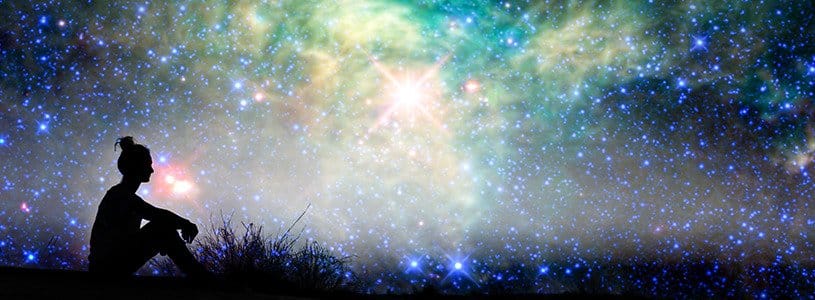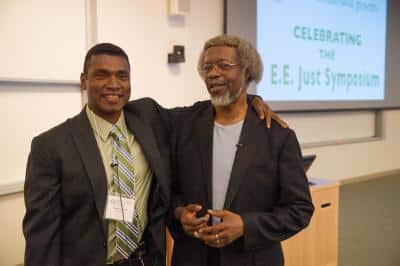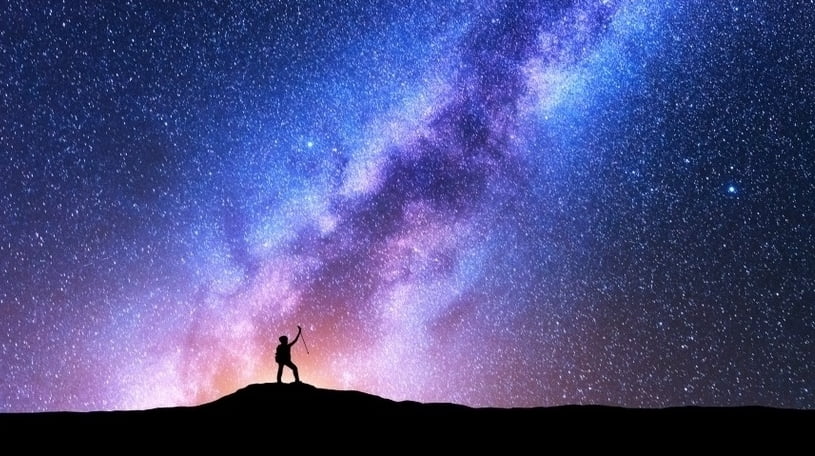A team of theoretical physicists working with Microsoft posted yesterday an extraordinary pre-press research paper which describes the universe as a self-taught system of evolutionary laws.
In summary? We would be inside a learning computer.
The self-taught universe
The simulation theme of Nick bostrom is a hot topic in recent times in scientific circles, and this study fits perfectly into this trend.
Nicknamed "The Autodidactic Universe", and published today on arXiv, the article presents a completely new and suggestive theory in 80 pages.
I try to tell you what I understand
Here's my take: Based on my interpretation of this article, the universe may or may not have existed. The fact that it exists tells us how it worked. Whatever law allowed it to exist set the stage for any subsequent law.
The article argues that the laws that govern the universe are a system of evolutionary learning. In other words: the universe is a computer and, rather than existing in a solid state, is perpetuated through a series of laws that change over time.
How does the self-taught universe work? Here's the hard part
Researchers explain the universe as a learning system using the example of machine learning systems. Just as we can teach machines to perform unfolding functions over time, that is, to learn, the laws of the universe are essentially algorithms that work in the form of learning operations.
It's poetic, if you think about it. We understand the laws of physics as we look at them, so it makes sense that the original physical law is incredibly simple, self-feeding, and able to learn and evolve. Let him be, in one word, self-taught.
Maybe the universe didn't begin with a Big Bang, but a simple interaction between particles, and then one thing led to another. The researchers allude to this humble origin by stating that “information architectures typically amplify the causal powers of rather small collections of particles.”
What does it mean? If you ask me, it means to me that the game is rigged.
Scientists describe the ever-changing laws of the universe as irreversible.
One implication is that if the evolution of laws is real, it is likely to be unidirectional. Because a new state is not random, but must satisfy certain constraints, while the immediate past state has already satisfied the constraints.

To explain this further, the researchers give the example of a forensics expert trying to recreate how a certain program arrived at a result.
In one case, the expert can simply check the magnetic marks left on the hard drive. In this way, the results of the program are reversible: there is a history of their execution.
But if the same expert tried to determine the results of a program by examining the CPU, arguably the entity most responsible for its execution, it would be much more difficult to do. There is no intentional internal logging of operations performed by a CPU.
To understand how that program works, one would have to examine how each particle that interacted with its logic gates during operations changed.
Self-taught universe: implications and consequences

If the universe functions through a series of laws that, while initially simple, are self-taught and therefore capable of evolving over time, it may be impossible for humans to unify physics.
According to this paper, the rules that governed concepts such as relativity may have had different operational consequences 13,8 billion years ago compared to 100 billion years ago. And this means that “physics” is a moving target.
Of course, this is all theoretical physics speculation. Surely the researchers don't literally mean the universe to be a computer, right?
The Universe is a learning computer.

Part of the theory seems to indicate that the universe is a learning computer, as the laws by which it is currently bound were not set in stone at its inception.
We cannot reverse the universe as a process, because there is no internally verifiable record of its processes, unless there is a “cosmic hard drive” floating out there in space somewhere.
This is a preliminary article, but researchers will work to add to it the types of algorithms and neural network systems such a universe would generate and, in fact, be governed by.


